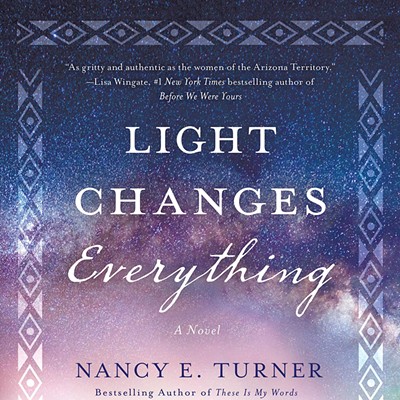This is odd, since the whole concept of the Western has birthed some excellent films. Ride on over to Casa Video, and check out Lonely Are the Brave, The Wild Bunch, The Shootist, Junior Bonner, the Clint Eastwood spaghetti Westerns and (more recently) All the Pretty Horses, just to name just a few. But the books? Yech.
Now, finally, there's a Western writer to match the movies.
J.P.S. Brown (short for Joseph Paul Summers; see "J.P.S. Brown's Last Stand," Aug. 30, 2007) has been hammering away at his craft for almost 40 years. He's hit some serious home runs. Published in 1970, Jim Kane became the movie Pocket Money with Paul Newman and Lee Marvin. The Outfit followed soon after, to much acclaim. Experts on "border lit" speak in hushed, reverent tones about The Forests of the Night, set deep in the heart of the Sierra Madre. And there's a small shelf of others, including the recently published bittersweet memoir of a border childhood called The World in Pancho's Eye.
What sets Joe Brown apart from his peers is that he's the real thing, an honest-to-gawd cowboy in a world of pathetic wannabes, fakers and pretenders.
Brown was born in 1930 in Nogales. From a tough childhood rose this bear of a man who became a boxer, a Marine and a student at Notre Dame. He's also been a reporter, a stuntman, a whiskey smuggler, a cowboy and, oh yeah, a writer.
The writing thing was pretty much an accident. He came down with hepatitis back in the mid-'60s. While recovering from that adventure, he took refuge in his grandmother's Nogales home, where he began writing stories.
As with many of our finest writers, the man is a walking train wreck who should have died years ago. Five marriages. Poisoned twice. Shot once (though thankfully the gun misfired). Ice-picked in a bar fight--the weapon narrowly missed his heart. A plane crash. Nearly three decades of drink. And now heart trouble--seven heart attacks since 1987, including two during the writing of Wolves at Our Door. This guy is one tough hombre, and his writing reflects this innate toughness.
"Novels are designed to stretch the mind, not to answer literary questions," notes Jim Harrison in his new intro to James Welch's The Death of Jim Loney, and J.P.S. Brown's Wolves at Our Door does just this.
The book is the story of a 75-year-old cowman named Jim Kane and his Mexican partner, Juan Vogel. Between them, they own a handful of ranches from the Sonoran coast through the Sierra to the Arizona-Sonora border, and they raise Mexican Corriente cattle. If you think you've seen these names before, you would be correct--the story brings together some of Brown's more memorable characters from earlier books. The two men battle the opium grower and smuggler Nesib Lupino and his extended family, a neighbor of Kane and Vogel's whose shady business dealings and influence impacts a vast swath of the Sierra Madre and Southern Arizona.
What will stretch your mind is that much of what Brown writes about in his novel is absolutely true--it's based on the real life of the border that's going on all around us as we sit sipping on lattes in our tidy little Tucson homes with iron-window bars and burglar alarms.
Brown knows this region like the back of his hand. Much of it is still only accessible on horseback, muleback or foot. That's why it's such a great place to grow and smuggle dope. It breeds individualists and characters aplenty, enough for dozens of novels. It's a world of risk, instinct, courage, craziness and, often, violent death.
The wolves of the title are the drug runners, gangsters, kidnappers, robbers, rapists and other criminals who've made both sides of the border home. Yes, both sides of the border. If you don't believe me, ask someone from the Bureau of Land Management sometime about what goes on in the backcountry of Ironwood Forest National Monument.
This is also a book about getting old, about loss, about love, about having fun. It's about animals, friendship and loyalty, and is set in a place of amazing natural beauty: the Sierra Madre, a place that is changing and will never be the same again. It is full of the life of the West, but not the fake Old West we were raised with.
This novel, and J.P.S. Brown, are the real thing.








